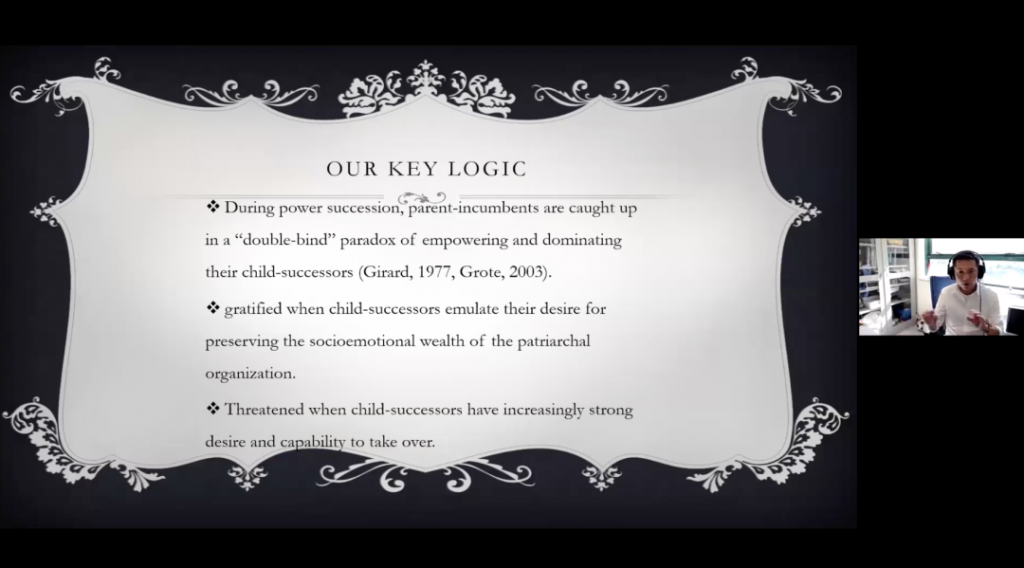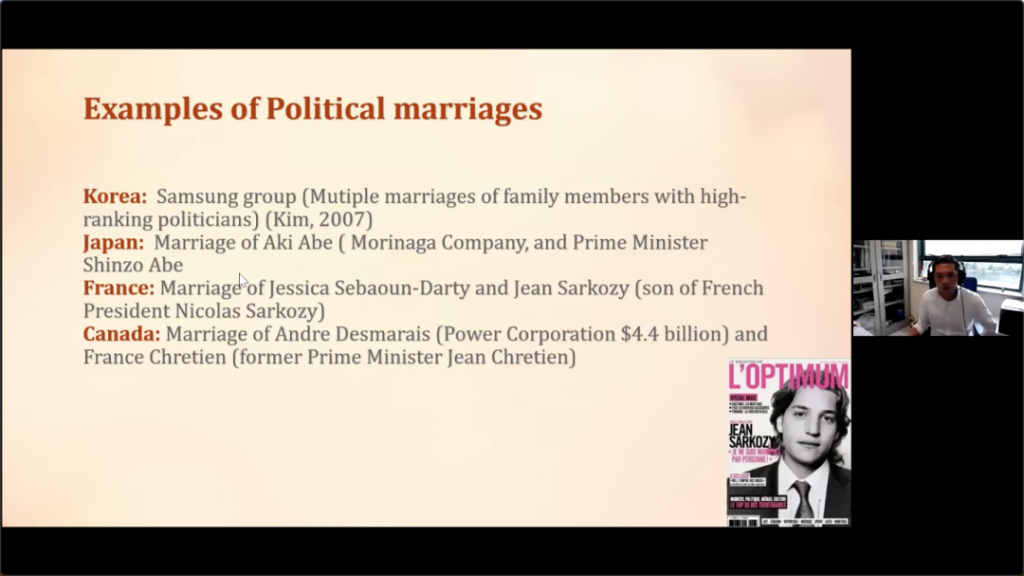讲座回顾|IACMR研究系列讲座第四期——黄旭
IACMR has launched two monthly seminar series- IACMR Research Seminar Series and IACMR Young Scholar Development Seminar Series. Through these platforms, we hope to provide IACMR members with greater access to high-quality management research, and also offer a place to seek advices in career development (both in research and teaching), especially during these times of restricted travel.
IACMR Research Seminar Series Session #4
The fourth session of IACMR Research Seminar Series was launched on September 23 via Zoom. The speaker was Professor Xu Huang from Hong Kong Baptist University. The topic of his speech was Power of Love: Intimate Relationships of Top Executives and Firm Performance. The webinar was hosted by Dr. Jia (Jasmine) Hufrom the Ohio State University, she is the Co-chair of IACMR Research Committee. More IACMR Research Seminar sessions will be monthly delivered by scholars around the world.

Power not only corrupts but also induces paradoxical behaviors of powerholders. In this seminar, Prof. Huang presented the results of his three projects, in which Prof. Huang and his team investigated how top executives’ intimate relationships with their family members and romantic partners shape their leadership behaviors and firm performance.
Content
Project 1: Shadow of the prince: parent-child rivalry
Project 2: Instrumental love: political marriages of offspring
Project 3: Power of love: married CEOs and CSR
In Project 1 [i.e., a recently published paper, please read the review of the paper follows this article (为什么家族企业的在位者对继承的子女们“忽冷忽热”?) send today], they theorized and demonstrated how business owners exhibited paradoxically coercive control over their child-successors during power transitions in family organizations.

In Project 2 (i.e., a paper under review in a journal), Prof. Huang and his team examined the impact of “political marriage”, defined as a marital relationship between a son/daughter of the family business owner and a daughter/son of a politician, on firm performance. Using data from 164 family firms in China, they found that political marriage benefits family firms the most when the duration of the political marriage is long and the degree of romantic love of the married couple is low (rather than high).

In Project 3 (i.e. an ongoing project), using data from S&P 1,500, Prof. Huang and his team tested the idea that married CEOs are more likely to drive their firms to have better CSR performance; and a high level of power possessed by CEOs is likely to corrupt the beneficial effects of CEO’s marital status.
General Discussion
1. Powerholding parents’ pathological paradox
2. Instrumentality of marriage overrides true love
3. Power undermines the benefits of marriage
Please click here to get the full video of this session.
About Prof. Xu Huang

Professor Huang received his Ph.D. from the University of Groningen (the Netherlands), MA from Lancaster University (UK), and Honors Diploma from Lingnan University (Hong Kong). Currently, he is the Associate Dean of the School of Business, and the Head of the Department of Management, Hong Kong Baptist University. He is also the Director of the MBA program and MSc Business Management Program of the School of Business. Since 2010, he has served as an Adjunct Professor in the Centre for Work, Organization and Wellbeing, Griffith University. He has also been appointed as a Visiting Chair Professor in Shanghai University of Finance and Economics since 2012. He is Deputy Editor of the Management and Organization Review, and a member of editorial board for Academy of Management Journal and Human Relations. Professor Huang is now serving as an Independent Director of the board of Giodano International Limited.
Professor Huang’s research interests include leadership, power, proactive and abnormal work behaviors, employee well-being, cross-cultural psychology, and management issues in China. He has published more than 70 papers in international journals including Administrative Science Quarterly, Academy of Management Journal, Journal of Applied Psychology, Journal of International Business Studies, Personnel Psychology, Journal of Management, Management and Organization Review, Journal of Organizational Behavior, Journal of Organizational and Occupational Psychology, Human Relations, Leadership Quarterly, and so forth.
